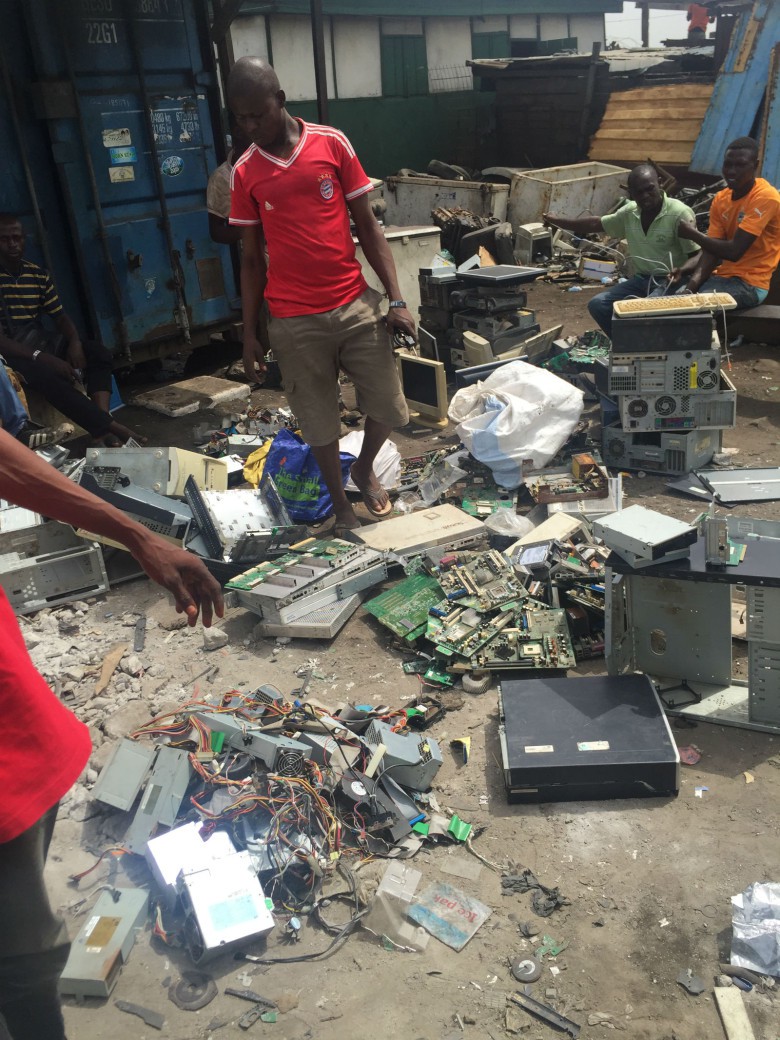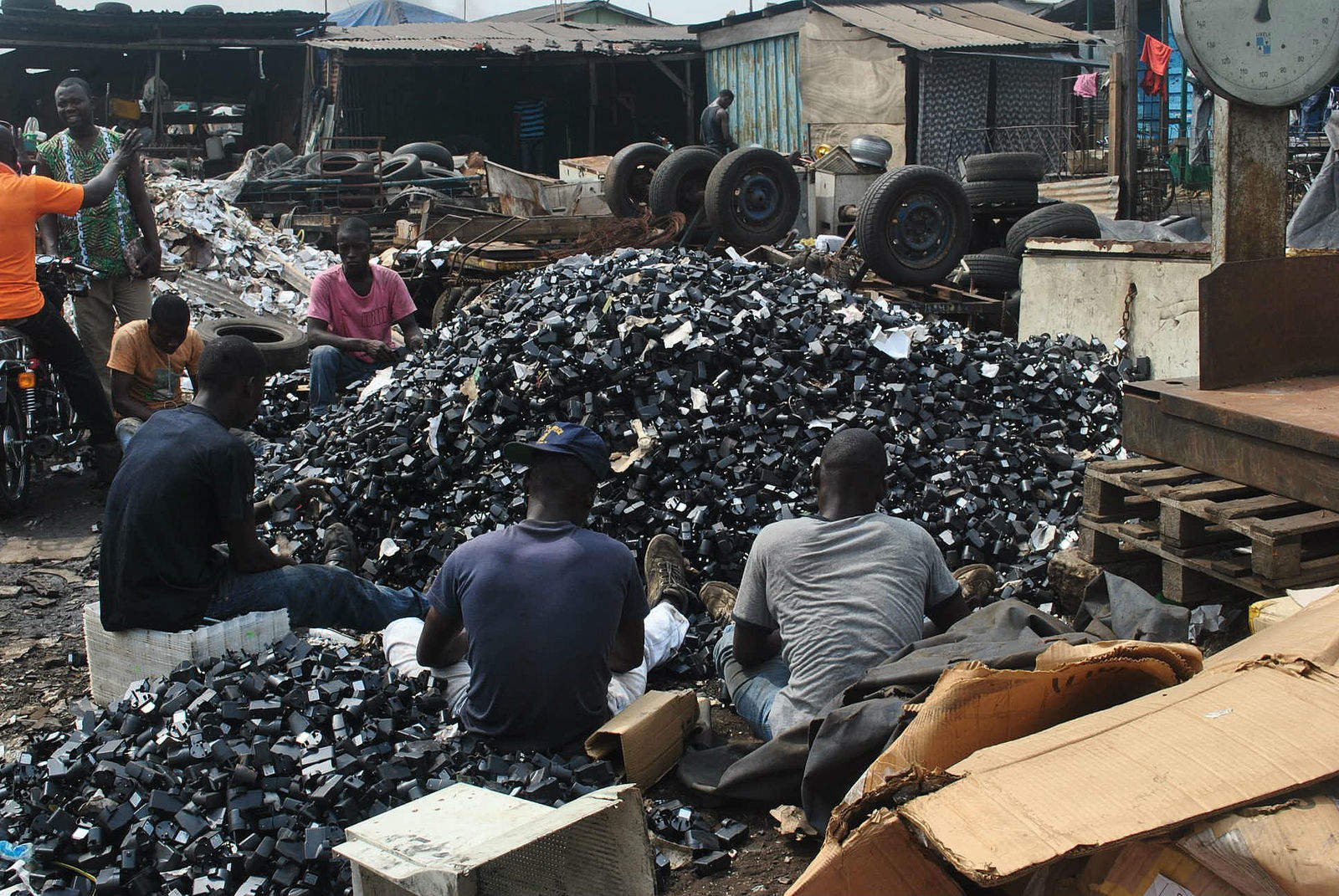Consumers have a nasty habit of throwing out their electronics as soon as newer, shinier models become available, and they rarely ever do so properly. Nearly 42 million tons of e-waste — everything from microwaves and electric shavers to washing machines, laptops, cellphones, TVs and computer monitors — entered the global garbage stream in 2014, according to a United Nations University report.
Like all trash, this stuff doesn’t just disappear. Instead, it stacks up in landfills. Unlike most trash, however, e-waste is often packed with valuable components — as well as toxic chemicals and materials that can cause real damage wherever they end up.
Ghana offers us a glimpse at some of the economic and environmental consequences of e-waste. In the West African nation’s capital of Accra, particularly the slum known as Agbogbloshie, large landfills are strewn with decades’ worth of discarded electronics. It’s one of the most concentrated e-waste sites in the world.
Enterprising locals have created a booming second-hand market around the (questionably legal) influx of old printers, TVs, computers and whatnot. Upon landing on Ghana’s shores, these devices enter into a vibrant network of repairmen, resellers and middlemen who pass them on to locals, who otherwise wouldn’t have been able to afford such products.

Photo: Jason Tester Guerrilla Futures/Flickr CC
Whatever is not salvageable for resale becomes part of an urban mining process, picked apart by hand for the valuable materials that can be recovered from the devices’ carcasses. That same United Nations University report (.pdf) says 2014’s e-waste contained about 16,500 kilotons of iron, 1,900 kilotons of copper and 300 tons of gold, along with silver, palladium and other precious metals worth an estimated $52 billion.
Unfortunately, not all of that waste gets properly processed or recycled, and many harmful substances get unleashed — lead, mercury, cadmium, chromium and chlorofluorocarbons, to name a few. Those who work to extract the valuable constituents, many of them children, get exposed to the harmful materials. Those not directly handling the hazardous e-waste still get exposed to it, most obviously by the common practice of burning things like wires and circuitboards to extract copper.
Without proper protection and processing methods, the marginal economic benefit of reselling precious metals or refurbished electronics comes with a major risk of contamination. There is serious concern about the lead levels that might be accumulating in residents’ blood, along with traces of iron and antimony from contaminated fish. High levels of PCBs have been detected in the breast milk of area women, while dangerous levels of aluminum, copper, iron, lead and zinc have been measured in the air and soil.
Agbogbloshie illustrates the importance of properly disposing of old electronics, whether to keep them working or to process their most hazardous components. Keeping gadgets working and in circulation, rather than tossing them, stops their toxic elements from seeping into the environment — and also creates opportunities for people to make use of them who might not have access to them otherwise.
You can be part of the solution
E-waste is a global problem, but the solution starts locally. Keeping our electronic detritus circulating within our borders keeps it from polluting others’ shores, helping to ensure a better environment for us all.
That’s one of the aims of Cult of Mac’s buyback program: By partnering with electronics recycling company MyPhones Unlimited, we’re making it easy (and lucrative) for you to send your old electronics to a service that will refurbish and return the gadgets to the market or properly dispose of them if that’s not possible.
Find out just how much money your old gear, whether working or not, can be worth. Cult of Mac’s buyback program will pay top dollar — and keep your throwaways out of landfills.


